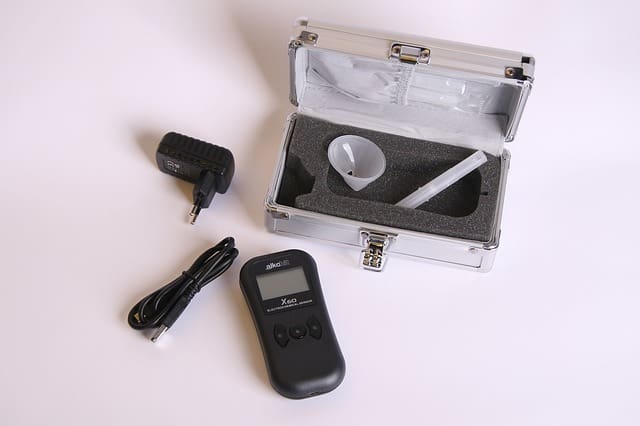4 Factors That Can Compromise Your Alcohol Breath Test
Have you been charged with a DUI? Most probably the police officer who pulled you over-tested you with a breathalyzer. Even though the result of the breathalyzer may serve as evidence of an excessive blood alcohol level, there are several factors that may affect its accuracy. According to peer-reviewed studies, there’s a 50 percent error margin when comparing the blood alcohol level to the breathalyzer test results. What are the chances that your test results were flawed, too? Let’s see four reasons why your breath test may be inaccurate.
1. Improper Calibration
The accuracy of a breathalyzer test depends on the regular calibration and maintenance of the device. The breathalyzer should be checked for accuracy at specific intervals. The police officer must be certified to administer this test. Furthermore, the test must provide a minimum of two readings within .02 of one another. A defense attorney may use all of these to your advantage, to claim that your breathalyzer results may be inaccurate, and therefore not eligible as solid evidence in court.
2. Electronic Interference
Breathalyzers can interfere with various radiofrequency transmissions, leading to flawed results. Devices that may generate electronic interference include but aren’t limited to police radar units, handheld transmitters, and even radio units. All of these pieces of equipment emit electromagnetic waves that may interfere with the breathalyzer, rendering your test unreliable. Even RFI detector devices may be compromised.
3. Your Medical Conditions
Medical conditions that lead to an increase of the acetone level in the body may lead to false-positive breathalyzer test results. These devices can’t tell the difference between ethyl alcohol and acetone. Diabetes is one of the most relevant examples.
Gastroesophageal reflux disease is another good example. When undigested alcohol gets pushed back up the esophagus, it may generate a higher alcohol concentration in your breath.
4. Exposure To Airborne Chemical Particles
Breathalyzers work by measuring the alcohol levels in exhaled air, rather than the actual alcohol content of the blood. This measurement is then converted into a blood alcohol level estimate. However, the machine can’t detect the source of the alcohol in the air. Also, it can’t make the difference between alcohol and other substances. If you work with gasoline, lacquer, cleaning substances, varnish, or oil-based paint, your breath may contain chemical fumes that can trigger a false-positive breathalyzer test result.
If you find yourself facing a DUI charge, remember that your breath test results may have been flawed by one or more of the above-mentioned factors. You can discuss your case with a defense attorney, in order to ensure you’re truly guilty as charged.
Give Jim a call or contact him and let him give you a free consultation so that you can get the help that you need. Visit our blog for more related articles.

